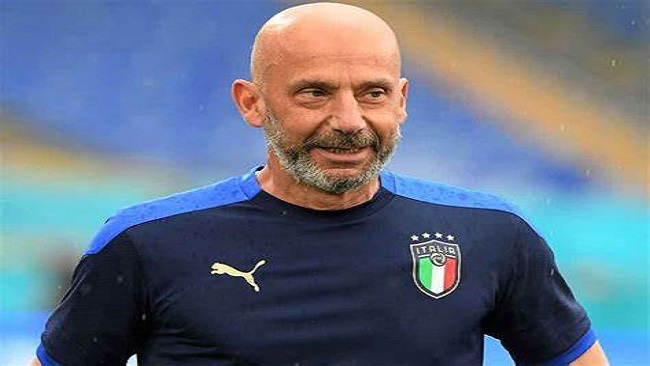Gianluca Vialli: Former Italy and Chelsea striker dies aged 58 after battle with pancreatic cancer
Gianluca Vialli’s death on Friday robbed Italian football of an iconic figure of its golden era, a powerful yet studious centre-forward who won almost every honour and was one of the English Premier League’s first big-name foreign imports.
Vialli, who had battled pancreatic cancer since 2017 before finally succumbing to what he called “an unwanted guest” at the age of 58, was the archetypal Italian ‘signore’, a well-dressed, well-spoken gentleman who nonetheless thrived in the bruising world of Italian football.
His glittering club career saw him at one point become the world’s most expensive player when Juventus paid Sampdoria 16.5 million euros in 1992 and he ended his career with one final successful spell at Chelsea.
The son of a self-made millionaire, Vialli grew up in a 60-room castle in his native Cremona.
His bustling style of forward play belied his comfortable upbringing and led him to the greatest heights at club level.
During most of the 1980s and early 1990s he was part of a devastating strike partnership at Sampdoria with Roberto Mancini, one of Italy’s most naturally gifted players of the era, which carried the Genoa-based team to unprecedented levels of success and led to them being nicknamed “the goal twins”.
In eight years at Sampdoria, Vialli won the club’s only Serie A title in 1991, the previous year’s Cup Winner’s Cup and three Italian Cups.
They also came to within a hair’s breadth of winning the European Cup in 1992, being narrowly beaten by Johan Cruyff’s Barcelona ‘Dream Team’.
London calling
Vialli was one of the first leading players to leave a club on a free transfer thanks to the Bosman ruling, departing Juventus after he won the Champions League in 1996 to link up with fellow former Serie A star Ruud Gullit at resurgent Chelsea.
By then 31, Vialli was among the first wave of foreign stars who would soon flood the Premier League and alongside compatriots Roberto Di Matteo and Gianfranco Zola turned Chelsea into trophy and title contenders after a long silverware drought.
“It was a club that had exciting plans… even if this was before (Roman) Abramovich. There was already the idea within the club of winning the league,” Vialli said in 2016.
“Gullit was there and I had the chance to live in London. You put that all together and I couldn’t have said no.”
In 1997 he helped Chelsea to the FA Cup, the club’s first major honour in 26 years, and the following year won the League Cup and Cup Winner’s Cup after taking over as player manager from the sacked Gullit.
In his final campaign as a player he led Chelsea on a title challenge that only faded in late April, and in 2000 won a second FA Cup before being replaced by Claudio Ranieri in the following season.
A humbling spell at Watford followed before Vialli decided to leave the game to become a pundit on Italian TV.
“I realised that there were more fun, less stressful things to do than be a coach,” he said.
“Then there was the fact that I’d got married. Before then, I was married to football.”
However he retained a strong affinity to Chelsea and lived in London with his family until his death.
Italy blues
He scored 16 goals in 59 matches for Italy but failed to recreate his often exceptional club form on the international stage.
At the height of his powers he flopped at the 1990 World Cup on home soil, shoved aside early on to make space for Roberto Baggio and Toto Schillaci, and his Italy career never recovered.
At one point he went over two years without scoring for Italy, and his final match for the national team came in 1992 when he was still in his late 20s, surprisingly early in a career that was still to bring another Serie A title and the Champions League with Juve.
However he remained a popular figure and in 2019 became Italy’s delegation chief, providing support to old friend and head coach Mancini.
His tearful embrace with Mancini on the Wembley pitch after Italy beat England on penalties to win European Championship in 2020 became one of the iconic images of an emotional triumph.
Source: AFP





